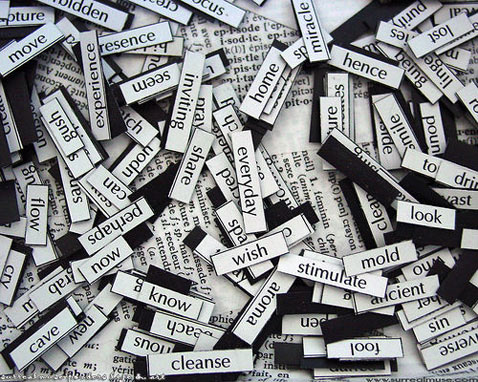Language is one of the greatest gifts that we humans possess. It sets us apart from every other creature on earth. Scientists, experimenting with animals to determine the extent of their language efficacy, report that animals do communicate among themselves, as various studies in Nature and other scientific journals attest, but so far nothing has been found to equal humans’ ability to express themselves in free-flowing complex and comprehensible language. Words, the vehicle of language, are a capital asset, and even in this age of twitter and text messages, real words still matter and are influential.
Our thoughts and emotions can be couched in words and phrases laden with the potential for extensive good, yet words are inherently fleeting, and it is precisely because of their evanescence that we ought to be careful to use words that leave no harmful residue of negativity. As children we were told to choose our words carefully because, once spoken, words can’t be pulled back in like a kite. This caution also holds true for us in adulthood. We, too, need to be careful how we use the gift of words. But when we observe how words are being used in the current national atmosphere, we have to conclude that some grownups, especially those in high places, tend to forget to mind the words of their mouths.
Words are fleeting, yet, paradoxically, they have staying power. We can only react in awe at the extent to which the words of individuals who have passed on linger to make a difference hundreds, even thousands, of years after they were written, and we can haul them in at will from the printed page—and nowadays on a variety of technological devices—to get information, instruction, and inspiration. Whether simple or profound, these words can make a lasting impact.
The powerful words of author Richard Wright have been preserved for us in his novels Black Boy and Native Son. However, Wright, has no reputation as a poet, but at one point in his life, he was introduced to haiku, a short Japanese poetic form with a rigid, demanding pattern. A haiku must contain only 17 syllables in three lines and convey a dominant image. Most Western poets, even the great ones, don’t tackle haikus, but Richard Wright did, became obsessed with the form, and compiled a whole volume of them. They weren’t published in his lifetime, and even after they were posthumously published, they did not win critical acclaim. But one of his haikus has emerged as a poem with lasting significance. His words endure on the printed page, inviting us to find meaning in them.
I am nobody
a red sinking autumn sun
took my name away.
Whatever the author’s purpose was for writing this poem, we can see in it his incisive, critical posture, suggesting the pain that he as an African American man suffered as a result of an assault on his name. Looking at the first line, we can conclude that there is sharp dissonance here. Not many people—Emily Dickinson perhaps the only one— would go around proclaiming to the world, “I am nobody.” In some social groups, there are individuals who seem to be so eager to appear humble and self-effacing that they might just as well put a label on their foreheads stating, “I am nobody.” But they are in the minority. Most people believe themselves to be somebody in the great scheme of things, created in the image of God.
An autumn sun normally conjures up warm images of an attractive landscape that draws us to it, but oh how deceptive that is in the poem! It takes away the speaker’s name, doing an injustice to his sense of self. With his self-worth gone, a vital part of his life is lost.
In today’s society, there is no shortage of people in the role of that “sinking autumn sun” that carries away an individual’s name, leaving him or her feeling like a nobody. The autumn-sun person does not look positively at other people in their ethnic uniqueness, but has a blind spot concerning difference and uses words as weapons to slash at their humanity and shred their self-esteem. Recently, a group of women in national elective office had words used against them in blatant ethnic slurs through tweets and verbal expressions aimed at degrading their humanity and minimizing their standing as somebody in the world. A ruthless “sinking autumn sun” of a personality was at work.
Yet, despite the apparent evil abroad in the land, there is good, and the autumn sun can be true to its nature and its beneficent role in the world; it can build instead of belittle. A recent heart-warming magazine article presented glowing tributes from a number of individuals praising their former teachers for the words and actions that inspired and motivated them to succeed in school as well as in life. And we can be encouraged by writer and popular speaker Tony Compolo’s comment that his mother’s words “minimized” his failures and “maximized” his successes. Yes, it is possible for that red autumn sun to affirm us rather than steal from us.
In the current national political atmosphere, where negative language prevails, we can be heartened that there are people whose vision prompts them to use words as reservoirs of empowerment to help create for others a strong, enduring name that nothing and no one can take away.


Thank you for your thoughtful and analytic message regarding the importance of words in our lives and in our relationships with others. It is no surprise that the psalmist petitioned: “Let the words of my mouth… be acceptable in Your sight, O Lord…”